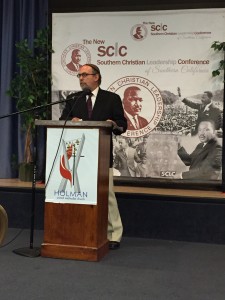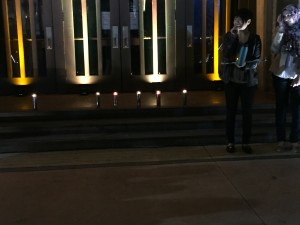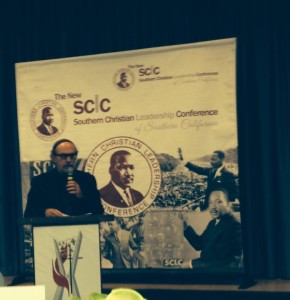The shootings seem to be coming quicker now. Buffalo, Laguna Woods, Uvalde. During that time there was also a shooting on the New York Subway. During that time twenty one people were shot by police. Three of them were unarmed. Of those who were allegedly armed, one was armed with a toy gun, one with a garden tool and one with an unknown weapon.
So far this year 17, 237 people have died from a firearm.
660 of those people were under 17.
554 were killed by police.
Young Black men are 14 times more likely to die of a firearm homicide than white men.
As of this writing, since Uvalde there have been eight more mass shootings.
We have an interconnected web of problems. A tangle that cannot be undone because its roots are foundational. Our country was founded with a toxic brew of violence and racism – one which celebrated guns, and valorized military power while purporting liberty.
There are more guns in private hands in the United States than there are people. These are handguns, long guns, combat style weapons, even 105mm Howitzers. Every person in the United States could be shot by a different weapon, and there would still be weapons yet to discharge bullets. These are the guns in private hands. We don’t publicly worry about the guns in police hands, even though police have used their guns to kill 554 people this year… so far. In addition their guns end up on the secondary market and then in private hands.
There are people in this country who are evil and hateful, and to rationalize their evil hatred construct fantastical theories about how Black people and Jews and feminists, and brown and Asian people, and trans people, and lesbian, gay, and bi people, are all coming to threaten them and take away their god given right to run this country or their family or the rotary club or whatnot. They have now typed it all up nicely and called it The Great Replacement Theory. Jews are supposedly orchestrating a conspiracy to import brown people to replace the white people. Jews manipulated the media and the Congress and the banks to pass the Civil Rights and the Voting Rights Acts. And on and on.
This is all, of course, bullshit. It is just a patina of words on top of old fashioned antisemitism, racism, xenophobia, Islamophobia, homophobia, and generalized fear and hatred of the Other.
In the 1930s, Nazi Germany proclaimed: the Jews are our misfortune. That is, the Jews were considered a disease and therefore needed to be killed. The Jews also supposedly caused the Germans to lose World War I and therefore needed to be killed. Also the Jews undermined the Aryan blood stock and therefore needed to be killed. You get the idea. So the Nazis invented mechanized mass murder.
After killing off Native Peoples and stealing their land, and then kidnapping Africans and building the economic power of this country on their backs, white enslavers made up a story about how God had intended the land for White Christians and Africans were only worthy of being enslaved. They edited the Bibles their preachers preached from so it didn’t have the Exodus stories. They made up nightmarish tales about Black people raping white women, inspired by the numerous actual rapes of Black women by enslavers.
And so all these evil hatreds are not new. It is old wine, old putrid, toxic wine in new bottles. This latest bottle is being peddled not only by folks in sheets, but also with a slight domestication by the likes of Tucker Carlson, who tells his stories about the Democrats bringing in illegal immigrants to vote white people or “legacy Americans” out of power.
Now, here is where the seemingly inextricable entanglement comes in. Gun violence is behind the genocide of Native Americans. It is mythologized in the story of the colonization of the West. The gunslinger was the hero of this mythology. The gunslinger who in real life actually got his acreage as a handout from the government who had the army steal it from Indigenous people.
Armed slave patrols and their license to kill anyone they suspected of being a fugitive ultimately evolved into our police forces.
Kidnapped Africans, who from the beginning attempted to gain their freedom by all possible means, were brutally suppressed by gun, whip, and chain.
From the founding of this country American identity was bound up with the violent use of guns. There was at times a gentlemanly flair that hid the brutality, but as we now all know Alexander Hamilton was killed by Aaron Burr in a duel over a perceived insult, over honor.
This notion of honor has also been incorporated in the police framing of law and order. Disrespecting a police officer can be deadly. “Contempt of cop” is what cops call behavior by people toward law enforcement officers that the officers perceive as disrespectful or insufficiently deferential to their authority. Think about that. America’s police forces have become (perhaps they always were) armed militias who think that their mission is to occupy rather than protect the most vulnerable populations.
And also, and equally as important, from the beginning by law and custom, Black people were not allowed to own guns. This changed during Reconstruction and then reverted back during Jim Crow. Martin Luther King’s application, early in his career, for a gun permit was turned down. When the Black Panther Party began openly carrying guns and shadowing the Oakland police force, Ronald Regan became a strong advocate of gun control. Philando Castile was a licensed Black gun owner who was shot by a cop for having a gun, (he had informed the officer about the gun because he was afraid of getting shot by that officer). Gun ownership is part of American identity, which is understood as white American identity.
So we have a violent white supremacist problem because we have a gun problem. We have a gun problem because we have a violent white supremacist problem.
To be an American today in many parts of the country means to own one or many guns. As we saw in Texas, this American white supremacist ideology is so much part of the DNA of our country that it managed to assimilate a Mexican American kid who bought two Rambo style weapons two days apart, a day after he turned 18, and slaughtered 19 children, and 2 adults.
We are broken. As a country we are broken. Our hearts are not broken in a way that humbles us so that love, or God, or the light can come in through the crack; our institutions are broken; our polity is broken.
So how do we move forward?
A problem that took four hundred years to create will not be solved in a day. There are steps that we can take, and that we can pressure our lawmakers to take. We, in our communities can move to decenter weaponry in our understanding of what it means to feel safe, what it means to “be a man”. This means getting police out of schools. They are ineffective in stopping school shootings, and too effective in the school to prison pipeline.
It means moving away from militarized and police based security at our synagogues and churches and mosques. There is no good data that shows that guns are especially effective. In addition, having guns, gates, and guards undermines solidarity between communities. This is, in the end, where we have to go. We have to build solidarity with each other. Inside communities and between communities. We have to radically love each other, we have to see the image of God in each other.
We also have to start getting rid of the weapons and the culture of weapons. It might have to begin slowly. Perhaps universal background checks. Perhaps banning automatic military style weapons. As many police as possible should be disarmed. The armed forces should not be allowed to transfer weapons to police forces. Ultimately we should aim for a complete ban on the private purchase of firearms, but this will take time.
“For this command which I charge you today is not too wondrous for you nor is it distant. It is not in the heavens, to say, ‘Who will go up for us to the heavens and take it for us and let us hear, that we may do it?’ And it is not beyond the sea to say, ‘Who will cross over for us beyond the sea and take it for us and let us hear it, that we may do it?’ But the word is very close to you, in your mouth and in your heart, to do it. See, I have set before you today life and good and death and evil, … Life and death I set before you, the blessing and the curse, and you shall choose life so that you may live, you and your seed” (Deuteronomy 30:11-19).
The sword and the Book are antithetical.
Choose life.


 This is what I said:
This is what I said: